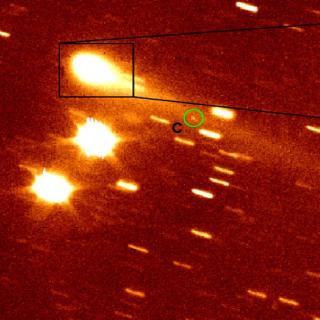Bibcode
Adams, J. H.; Ahmad, S.; Albert, J.-N.; Allard, D.; Anchordoqui, L.; Andreev, V.; Anzalone, A.; Arai, Y.; Asano, K.; Ave Pernas, M.; Baragatti, P.; Barrillon, P.; Batsch, T.; Bayer, J.; Bechini, R.; Belenguer, T.; Bellotti, R.; Belov, K.; Berlind, A. A.; Bertaina, M.; Biermann, P. L.; Biktemerova, S.; Blaksley, C.; Blanc, N.; Błȩcki, J.; Blin-Bondil, S.; Blümer, J.; Bobik, P.; Bogomilov, M.; Bonamente, M.; Briggs, M. S.; Briz, S.; Bruno, A.; Cafagna, F.; Campana, D.; Capdevielle, J.-N.; Caruso, R.; Casolino, M.; Cassardo, C.; Castellinic, G.; Catalano, C.; Catalano, G.; Cellino, A.; Chikawa, M.; Christl, M. J.; Cline, D.; Connaughton, V.; Conti, L.; Cordero, G.; Crawford, H. J.; Cremonini, R.; Csorna, S.; Dagoret-Campagne, S.; de Castro, A. J.; De Donato, C.; de la Taille, C.; De Santis, C.; del Peral, L.; Dell'Oro, A.; De Simone, N.; Di Martino, M.; Distratis, G.; Dulucq, F.; Dupieux, M.; Ebersoldt, A.; Ebisuzaki, T.; Engel, R.; Falk, S.; Fang, K.; Fenu, F.; Fernández-Gómez, I.; Ferrarese, S.; Finco, D.; Flamini, M.; Fornaro, C.; Franceschi, A.; Fujimoto, J.; Fukushima, M.; Galeotti, P.; Garipov, G.; Geary, J.; Gelmini, G.; Giraudo, G.; Gonchar, M.; González Alvarado, C.; Gorodetzky, P.; Guarino, F.; Guzmán, A.; Hachisu, Y.; Harlov, B.; Haungs, A.; Hernández Carretero, J.; Higashide, K.; Ikeda, D.; Ikeda, H.; Inoue, N.; Inoue, S.; Insolia, A.; Isgrò, F.; Itow, Y. et al.
Bibliographical reference
Experimental Astronomy, Volume 40, Issue 1, pp.91-116
Advertised on:
11
2015
Journal
Citations
5
Refereed citations
5
Description
The JEM-EUSO telescope will be, after calibration, a very accurate
instrument which yields the number of received photons from the number
of measured photo-electrons. The project is in phase A (demonstration of
the concept) including already operating prototype instruments, i.e.
many parts of the instrument have been constructed and tested.
Calibration is a crucial part of the instrument and its use. The focal
surface (FS) of the JEM-EUSO telescope will consist of about 5000
photo-multiplier tubes (PMTs), which have to be well calibrated to reach
the required accuracy in reconstructing the air-shower parameters. The
optics system consists of 3 plastic Fresnel (double-sided) lenses of 2.5
m diameter. The aim of the calibration system is to measure the
efficiencies (transmittances) of the optics and absolute efficiencies of
the entire focal surface detector. The system consists of 3 main
components: (i) Pre-flight calibration devices on ground, where the
efficiency and gain of the PMTs will be measured absolutely and also the
transmittance of the optics will be. (ii) On-board relative calibration
system applying two methods: a) operating during the day when the
JEM-EUSO lid will be closed with small light sources on board. b)
operating during the night, together with data taking: the monitoring of
the background rate over identical sites. (iii) Absolute in-flight
calibration, again, applying two methods: a) measurement of the moon
light, reflected on high altitude, high albedo clouds. b) measurements
of calibrated flashes and tracks produced by the Global Light System
(GLS). Some details of each calibration method will be described in this
paper.
Related projects

Minor Bodies of the Solar System
This project studies the physical and compositional properties of the so-called minor bodies of the Solar System, that includes asteroids, icy objects, and comets. Of special interest are the trans-neptunian objects (TNOs), including those considered the most distant objects detected so far (Extreme-TNOs or ETNOs); the comets and the comet-asteroid
Julia de
León Cruz